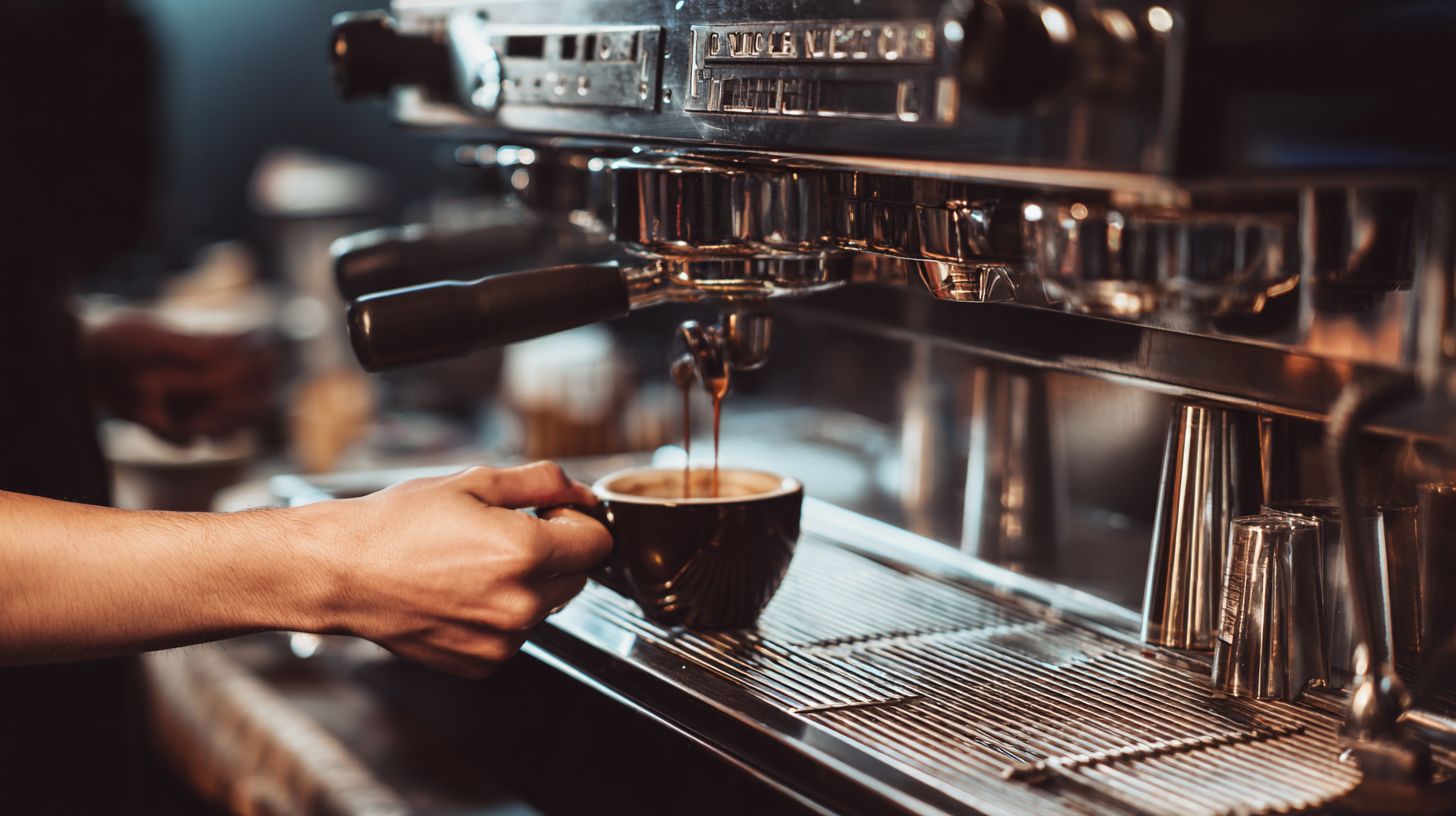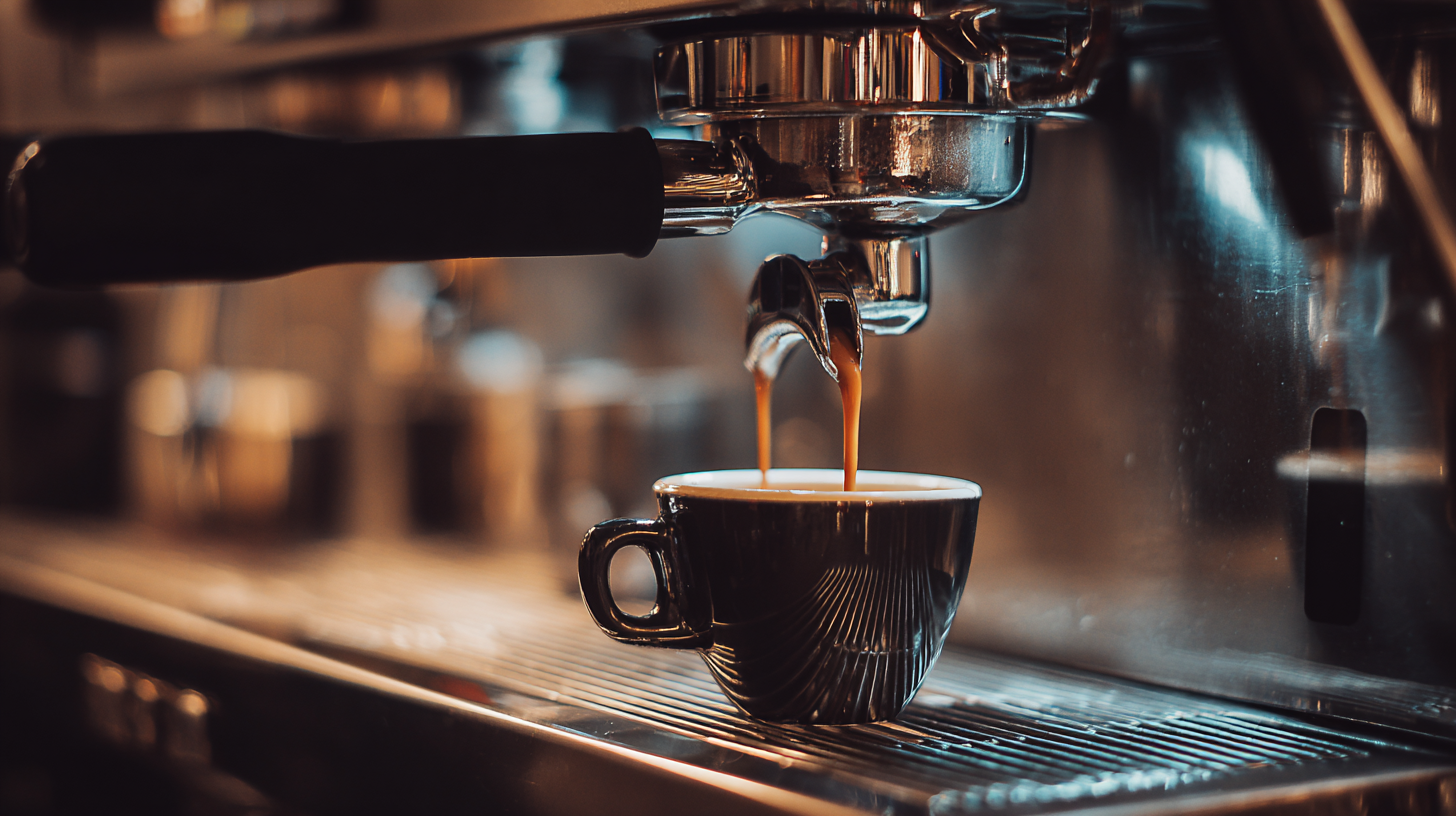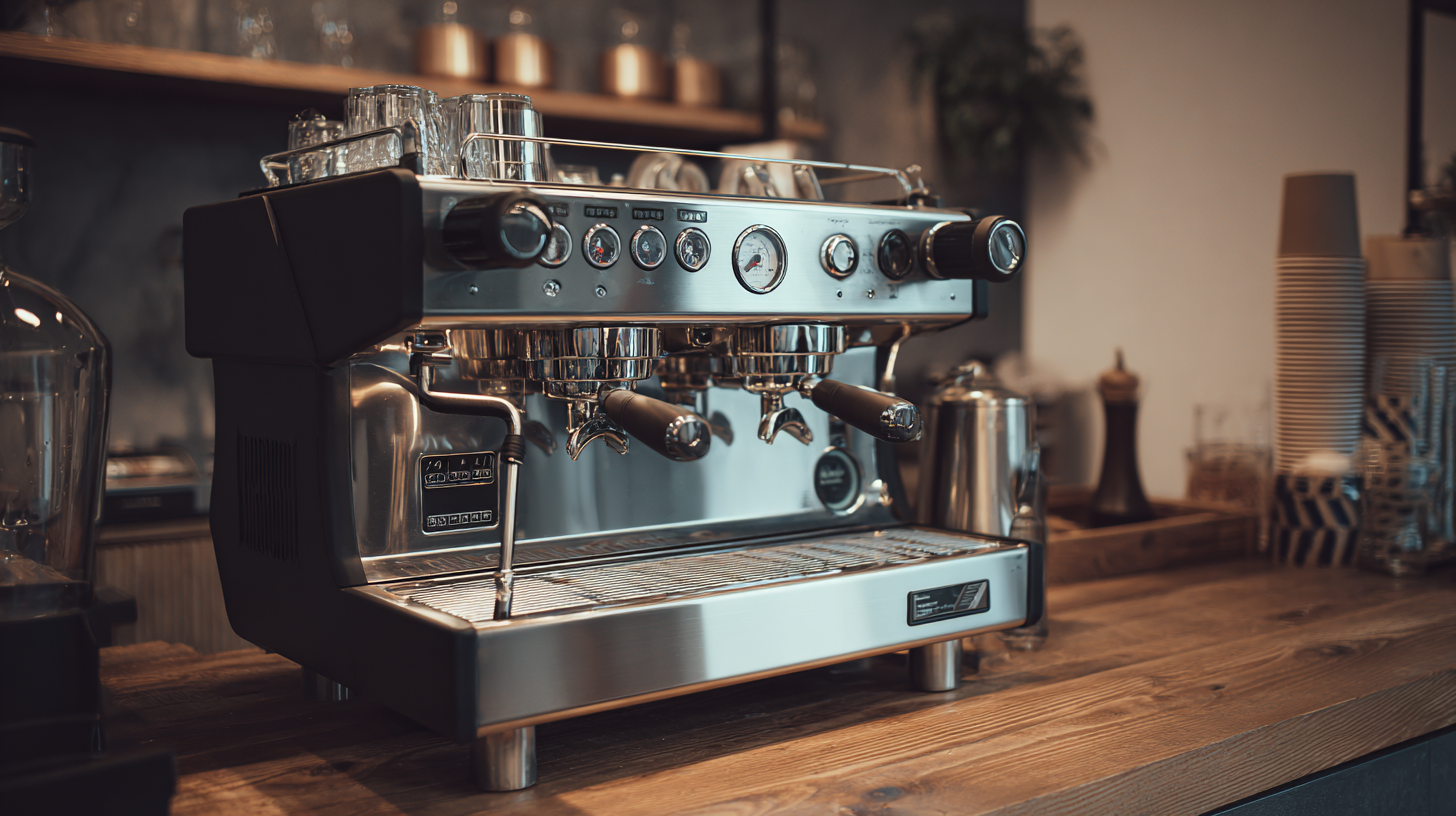10 Essential Tips for Choosing the Best Barista Coffee Machine for Your Business
In the competitive landscape of the coffee industry, the right equipment can make all the difference, especially when it comes to a barista coffee machine. According to a 2023 report by IBISWorld, the coffee shop industry has seen a steady growth rate of 2.7% annually, indicating a robust demand for quality coffee and, subsequently, advanced brewing equipment. A well-chosen barista coffee machine not only impacts the consistency and quality of beverages but also enhances operational efficiency and customer satisfaction. With consumers increasingly discerning about their coffee, investing in a high-quality machine can elevate a business's reputation and performance. This blog will explore ten essential tips for selecting the best barista coffee machine, ensuring that your coffee business remains competitive and meets the rising expectations of coffee aficionados.

Key Features to Look for in a Barista Coffee Machine for Commercial Use
When selecting a barista coffee machine for commercial use, there are several key features that should be prioritized to ensure exceptional performance and quality. First and foremost, automatic brewing functionality is essential. Machines designed with automation in mind not only streamline the workflow but also minimize human error, leading to consistently brewed coffee each time. This is crucial in busy café environments where speed and efficiency are paramount.
Additionally, a high-quality grinder is indispensable. Freshly ground coffee beans are integral to achieving a rich and flavorful espresso, so investing in a machine with an integrated or compatible grinder will enhance the overall coffee experience.
Another vital aspect to consider is the machine’s capacity and boiler size. For commercial use, it’s important to choose a machine that can handle high volumes without compromising on quality. Look for models with multiple boilers or heat exchange systems that allow you to brew and steam simultaneously, which can significantly improve service times during peak hours.
Lastly, durability and ease of maintenance should not be overlooked. A well-constructed machine that is easy to clean and maintain will save time and operational costs in the long run, making it a smart investment for any café or coffee shop.
Understanding Different Types of Coffee Machines and Their Purposes
When selecting a coffee machine for your business, it's essential to understand the different types of machines available and their specific purposes. From traditional espresso machines to modern single-serve models, each type has its strengths suited for various environments. For bustling cafes, commercial espresso machines offer the speed and quality needed to meet high demand, while smaller equipment might be ideal for office settings or smaller locations where space is at a premium.

In 2025, top-tested coffee machines continue to set the bar high for quality brewing. Many of these have been evaluated across various categories, ensuring you can find one that aligns with your business needs and budget. Whether you're looking for a classic drip coffee maker to cater to a wide audience or an entry-level espresso machine for budding baristas, understanding these distinctions will help you make an informed choice. With the right coffee machine, you can not only enhance your customers' experience but also streamline your operations and elevate your brand’s reputation.
Tips for Assessing Your Business’s Coffee Volume Needs
When selecting a coffee machine for your business, one of the most critical factors to consider is your coffee volume needs. Understanding how much coffee you plan to serve daily will directly influence your choice of equipment. For instance, a small café that caters to a handful of customers each morning might only require a compact machine, while a bustling coffee shop in a busy area will need a more robust, high-capacity model to keep up with demand.

Assessing your coffee volume also involves anticipating peak hours and seasonal fluctuations. Analyzing sales data can provide valuable insights into busy times and help you predict changes in customer preferences over time. This assessment will ensure that you select a machine that not only meets your current needs but also has the capacity for future growth. Investing in a machine that aligns with your volume can enhance efficiency, maintain quality, and ultimately lead to increased customer satisfaction.
Budgeting for Your Coffee Machine: Balancing Quality and Cost
When investing in a barista coffee machine for your business, striking the right balance between quality and cost is crucial. According to a report by IBISWorld, the coffee shop industry's revenue has reached approximately $45 billion in the U.S. alone, signifying a growing market where quality coffee can attract discerning customers. However, budget constraints often challenge entrepreneurs. It is essential to allocate roughly 20-30% of your equipment budget towards a high-quality coffee machine, which can range from $5,000 to $25,000 or more, depending on the features and brand.
In addition to upfront costs, ongoing maintenance and operating expenses must be factored in. Research from the Specialty Coffee Association indicates that a well-maintained espresso machine can increase profit margins by 15% to 20% compared to machines that require constant repairs or have inconsistent performance. Investing in a reliable machine not only enhances the quality of your coffee but also reduces downtime and maintenance costs in the long run, making it a smart financial decision for your business.
Maintenance and Support: Ensuring Longevity of Your Investment
When investing in a barista coffee machine for your business, maintenance and support play a crucial role in ensuring the longevity of your equipment. A report by IBISWorld indicates that regular maintenance can increase the lifespan of commercial coffee machines by up to 30%. This not only reduces the frequency of repairs but also minimizes downtime, allowing your business to maintain a consistent service and enhance customer satisfaction. Implementing a maintenance schedule, as recommended by industry experts, can significantly diminish the risk of unexpected failures.
Moreover, choosing a supplier that offers robust support services can further safeguard your investment. According to a survey conducted by Statista, businesses that utilize professional support services for their coffee equipment report a 25% reduction in long-term operational costs. In addition to regular maintenance, having access to a knowledgeable support team can help troubleshoot issues quickly and efficiently, ensuring that your machine operates at peak performance. Prioritizing maintenance and support when selecting a barista coffee machine will not only protect your investment but also elevate the overall quality of coffee served to your customers.
10 Essential Tips for Choosing the Best Barista Coffee Machine for Your Business - Maintenance and Support: Ensuring Longevity of Your Investment
| Tip | Details | Frequency of Maintenance | Expected Lifespan | Support Options |
|---|---|---|---|---|
| Consider Your Volume Needs | Choose a machine that matches your daily coffee output expectations. | Daily | 5-10 years | Manufacturer hotline & email support |
| Assess Required Features | Determine essential features like grinders, steam wands, and programmability. | Weekly | 5-8 years | Online tutorials & documentation |
| Evaluate Brand Reputation | Research and select brands known for reliability and customer service. | Monthly | 5-15 years | Third-party service providers |
| Plan for Water Quality | Invest in water filtration systems to ensure great coffee and machine lifespan. | Monthly | 7-10 years | Maintenance contracts available |
| Factor in Space and Layout | Ensure you have enough space for the coffee machine and workflow. | As needed | 5-12 years | Installation support |
| Explore User-Friendly Features | Look for intuitive controls that reduce training time for staff. | Weekly | 5-8 years | Remote diagnostics |
| Check for Warranty and Support Plans | Read the warranty details and consider purchasing extended support. | Anually | 10-20 years | On-site service & training |
| Review Maintenance Accessibility | Choose machines that are easy to clean and repair. | Daily | 5-12 years | 24/7 customer support |
| Consider Capacity for Accessories | Ensure compatibility with accessories like grinders and milk frothers. | As needed | 5-10 years | Training for accessory usage |
